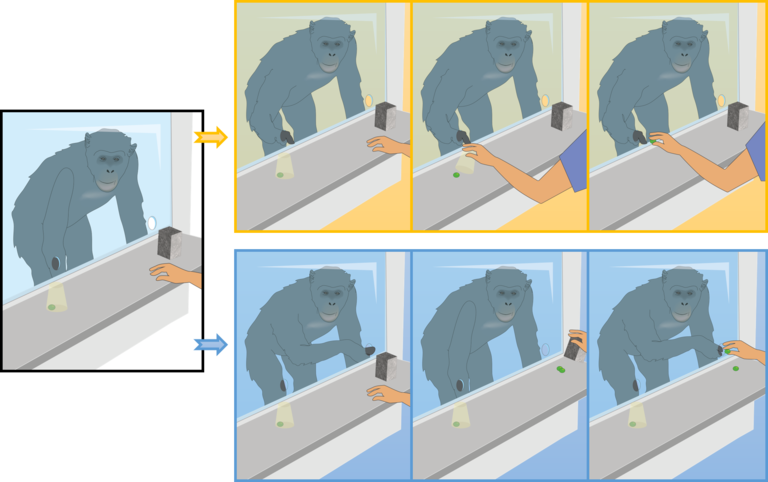Curious Children, Less Curious Apes
Children choose a “mystery box” more often than apes, but after a glimpse of a larger reward from the uncertain option, great apes show more curiosity

Humans are curious creatures. We are motivated to explore and investigate mysterious or unknown objects, but do other great apes share this innate curiosity? Researchers Alejandro Sánchez-Amaro at the Max Planck Institute for Evolutionary Anthropology in Germany and Federico Rossano at the University of California San Diego in the United States set out to investigate and found that children are more curious to explore the unknown than great apes. Yet, after a glimpse of the potential rewards, apes learn to investigate uncertain options.
Publication: Alejandro Sánchez-Amaro, et al., Comparative curiosity: How do great apes and children deal with uncertainty?, PLoS ONE (2023). DOI: 10.1371/journal.pone.0285946
Original Story Source: Max Planck Institute for Evolutionary Anthropology

 Alerts Sign-up
Alerts Sign-up